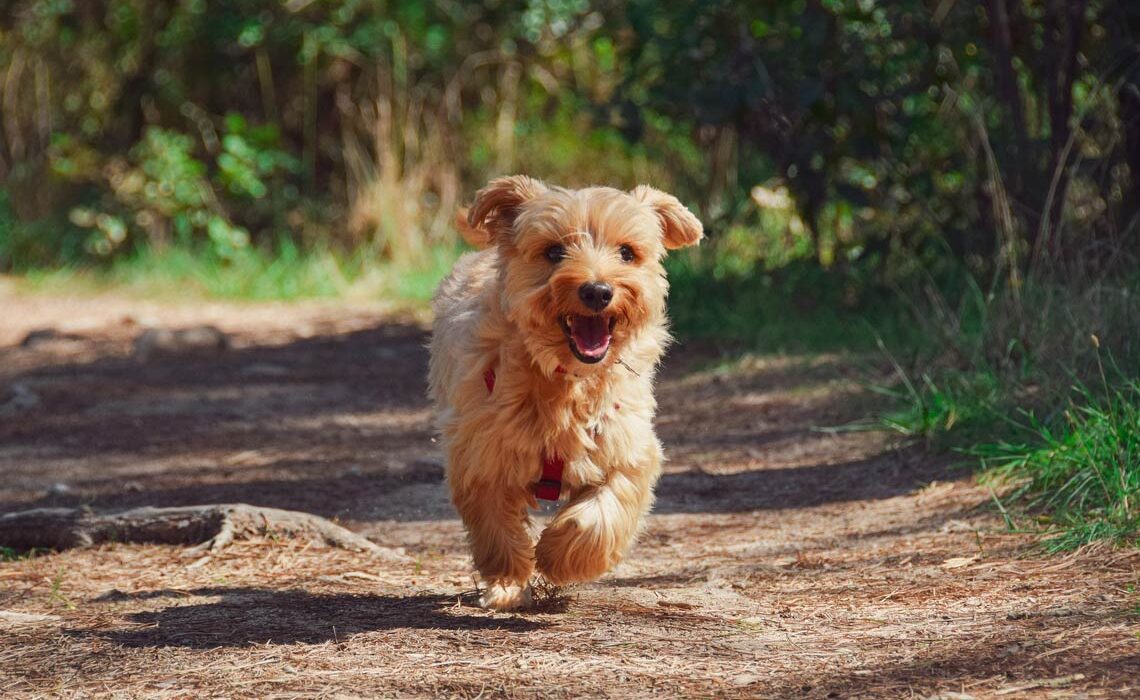There are plenty of good reasons to choose small dog breeds when adding a furry friend to your family. Small dogs are generally easier to care for than their larger counterparts, and they can be just as loving and affectionate. Some small breeds even have hypoallergenic coats, making them a good choice for people with allergies.
If you’re considering a small dog breeds, here are some things to keep in mind.
Size: The average small dog breeds are between 10 and 25 pounds. This size range is perfect for those who live in apartments or other small spaces, as well as those who travel frequently. Small dogs are also less likely to accidentally injure young children or elderly adults.
Energy Level: Small dog breeds have a reputation for being high-energy, but this isn’t always the case. Some small breeds are quite laid back, while others need plenty of exercises to stay happy and healthy. Be sure to research the energy level of any small breed you’re considering before making a decision.
Coat Care: Many small dog breeds have long, silky coats that require regular grooming. Others have short, easy-to-care-for coats.
If you don’t want to spend a lot of time grooming your dog, be sure to choose a breed with a low-maintenance coat.
Small Dog Breeds To Consider
Here are some popular small dogs breeds that you may want to consider adding to your family:
Chihuahua: The Chihuahua is the smallest breed of dog, weighing in at just two to six pounds. These dogs are known for their big personalities, and they come in both short-haired and long-haired varieties. Chihuahuas typically live between 12 and 20 years.
Pomeranian: Pomeranians are small, fluffy dogs that weigh between three and seven pounds. They’re one of the most popular small breeds, thanks to their friendly dispositions and lovely coats. Pomeranians typically live between 12 and 16 years.
Yorkshire Terrier: Yorkshire Terriers are another popular small breed, weighing in at four to seven pounds.
They’re known for their long, silky hair, which requires regular grooming. Yorkshire Terriers typically live between 12 and 16 years.
Cavalier King Charles Spaniel: Cavalier King Charles Spaniels are a small breed of dog that weighs between 13 and 18 pounds.
They’re known for being gentle and loving, making them great family pets. Cavaliers typically live between nine and 14 years.
Poodle: Poodles come in three sizes – Standard, Miniature, and Toy. The Toy variety is the smallest, weighing in at four to six pounds.
Poodles are known for their intelligence and loyalty, as well as their hypoallergenic coats. These dogs typically live between 12 and 15 years.
The Benefits Of Owning Small Dog Breeds
When it comes to finding the right furry friend to join your family, there are a lot of things to consider. But one important factor is what size dog you want.
And while big dogs have their own unique set of benefits, small dogs offer a whole different set of perks that might be just what you’re looking for. Here are four reasons why owning a small dog breed can be the best decision you ever make.
- Small Dog Breeds – They’re Easier to Train
One big advantage of small dogs is that they’re generally much easier to train than their larger counterparts.
They have shorter attention spans, which mean they can learn new tricks and commands more quickly. And since they’re small, they’re also less likely to get into trouble around the house, making them the perfect pet for first-time dog owners or those who want a low-maintenance pet.
- Small Dog Breeds – They’re More Portable
If you love to travel, a small dog breeds are the perfect companions. They’re much easier to take on trips and fit into tight spaces, like hotel rooms and airplanes.
And since they don’t need as much exercise as larger breeds, they’re content to lounge around in their carrier or travel crate while you explore your destination
- Small Dog Breeds – They Cost Less to Maintain
Owning a small dog is also more affordable than owning a large one. Their smaller size means they eat less food and require fewer toys and supplies. And since they don’t need as much exercise, you can save on doggy daycare or dog-walking fees.
- Small Dog Breeds – They Live Longer
On average, small dog breeds live longer than large breeds. This is due to a variety of factors, including their slower metabolism and lower risk of developing certain health conditions.
So if you’re looking for a furry friend that will be by your side for years to come, a small dog might be a perfect choice.
Whether you’re a first-time dog owner or a seasoned pet parent, there are plenty of reasons to consider adding a small dog to your family.
From being easier to train to cost less to maintain, these small dog breeds offer a whole host of benefits that make them the perfect pet for any household.
How To Train & Care For Small Dog Breeds
Assuming you have already decided on which small dog breeds is right for you and your family, it’s time to start training and caring for your new furry friend.
Though all dogs need love, attention, and basic obedience training, small dog breeds often have unique needs that require a little extra care.
With a little patience and understanding, you can successfully train and care for your small dog breeds so that they become a well-behaved, happy member of the family.
The first step in training and caring for your small dog breeds is to create a schedule that works for both of you. This means setting aside time each day to walk, play, feed, and train your dog. It’s important to be consistent with this schedule so that your dog knows what to expect and can begin to behave accordingly.
When it comes to feeding, small dog breeds often need more frequent meals than their larger counterparts. This is because they have smaller stomachs and therefore need to eat more often throughout the day.
It’s important to choose a high-quality food that is specifically designed for small dog breeds and to follow the recommended feeding schedule on the package.
In terms of exercise, small dog breeds generally need more than just a daily walk around the block. Many small dogs are very active and need plenty of opportunities to run and play.
If you don’t have a yard for your dog to run in, consider taking them to a nearby park or even enrolling them in a doggy daycare where they can socialize and play with other dogs.
In addition to exercise, small dog breeds also need mental stimulation to stay happy and healthy. This can be in the form of simple obedience training, playing interactive games, or even just spending time together doing things that your dog enjoys. The key is to find activities that both you and your dog will enjoy so that training is fun for both of you.
Finally, it’s important to provide your small dog breeds with plenty of love and attention. Dogs of all sizes need lots of affection from their humans, but this is especially true for small breeds.
Be sure to give your dog plenty of cuddles, kisses, and belly rubs every day to let them know they are loved.
By following these tips, you can successfully train and care for your small dog breed. With a little patience and understanding, you will soon have a well-behaved, happy furry friend that is an important part of your family.
What To Do If Your Small Dog Breeds Are Aggressive Or Barks Excessively
One of the most common behavioral problems that dog owners face is aggression or excessive barking from their small dogs.
While it may be tempting to simply ignore the problem or hope that it will go away on its own, doing so can actually make the situation worse.
If your small dog breeds is displaying aggressive or excessively barky behavior, there are a few things you can do to help correct the problem.
The first step is to try and identify what is triggering the aggressive or excessive barking behavior. Is your dog reacting to other animals, people, or certain environmental stimuli?
Once you have identified the trigger, you can begin working on desensitizing your dog to that particular trigger.
This can be done through positive reinforcement training, which rewards your dog for displaying good behavior.
If you are not able to identify the trigger, or if desensitization does not seem to be working, you may need to consult with a professional dog trainer or behaviorist.
They will be able to help you create a behavior modification plan that is specifically tailored to your dog’s needs.
Aggressive or excessive barking can be a difficult problem to solve, but with patience and consistency, it is possible to correct the behavior.
If you are struggling to manage your dog’s aggression or barking, reach out for help from a professional so they can assist you in developing a plan that will work best for both you and your furry friend.
Final Thought
Adding small dog breeds to your family can be a great decision. These dogs are easier to care for than their larger counterparts, and they come in a wide variety of shapes, sizes, and personalities.
Be sure to do your research before choosing a small breed, as some require more care than others. With the right small dog breeds, you’re sure to have a furry friend for years to come.

